Nanotechnology
-
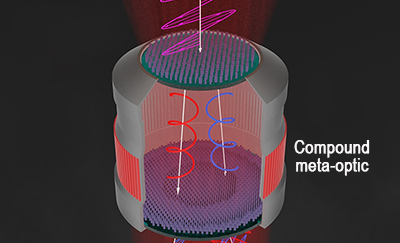
Nanostructured flat lens uses machine learning to ‘see’ more clearly, while using less power
A front-end lens, or meta-imager, created at Vanderbilt University can potentially replace traditional imaging optics in machine-vision applications, producing images at higher speed and using less power. Read MoreJan 5, 2024
-
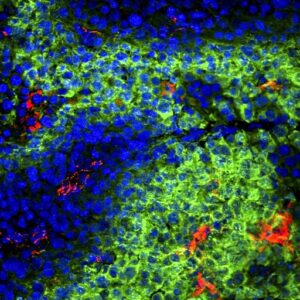
Nanotechnology repaves the path for cancer-fighting T cells
Vanderbilt researchers are bolstering the fight against cancer with technology that enhances the effectiveness of T cells that attack tumors. Read MoreMay 9, 2023
-

Nanotechnology repaves the path for cancer-fighting T cells
Vanderbilt researchers are bolstering the fight against cancer with technology that enhances the effectiveness of T cells that attack tumors. The cutting-edge research was recently published in the high-impact journal Science Immunology. Cancers co-opt both the immune and cardiovascular systems to fuel their own growth, researchers say. They do this in part by forming new... Read MoreMay 8, 2023
-

Research Snapshot: Vanderbilt engineer the first to introduce low-power dynamic manipulation of single nanoscale quantum objects
Assistant Professor of electrical engineering Justus Ndukaife is powering the quantum computing revolution with the development of the first on-demand, scalable technique to manipulate nanoscale nanodiamonds. Est. reading time: 2 mins. Read MoreJul 30, 2021
-
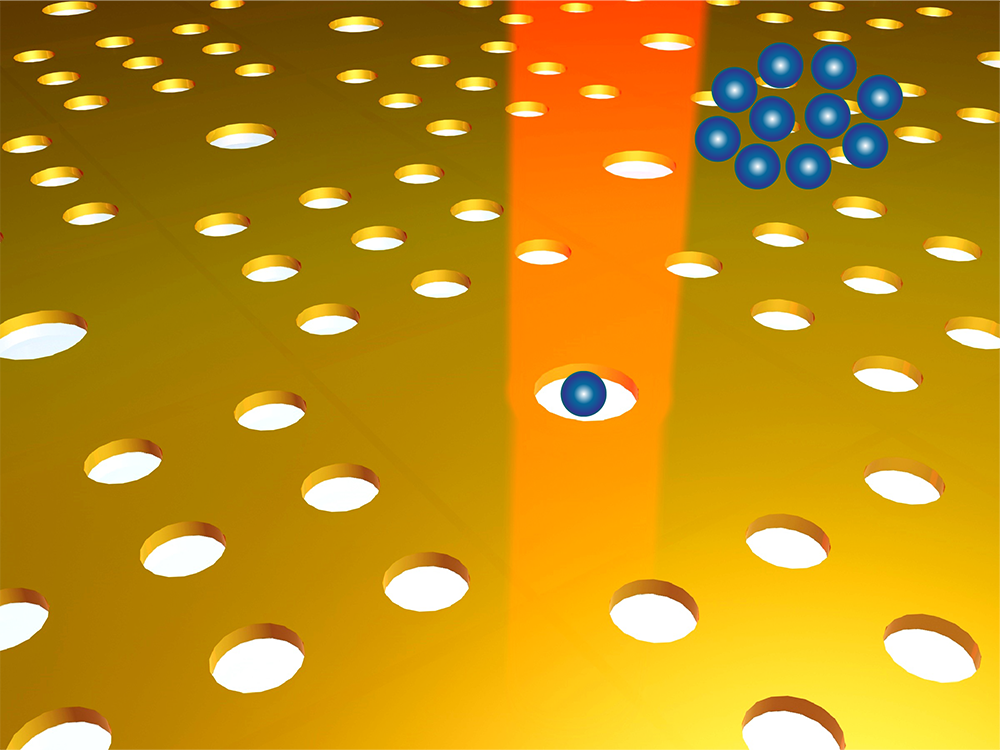
Faster, more precise lab-on-a-chip holds promise of early cancer diagnosis
Justus Ndukaife, who won the 2017 Chorafas Foundation Prize in Physics for his nanotweezers work, also recently was selected for the Carnegie African Diaspora Fellowship Program. Read MoreJun 25, 2018
-
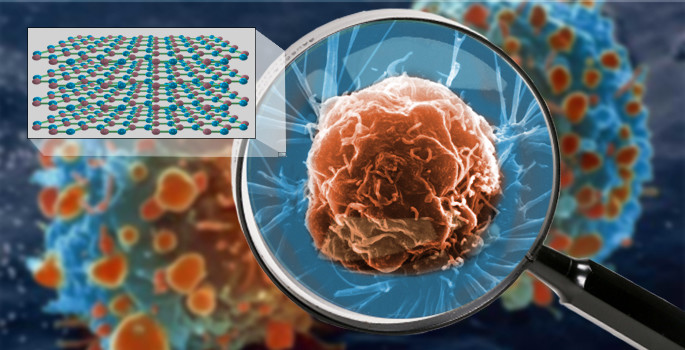
Hyperlens crystal capable of viewing living cells in unprecedented detail
A fundamental advance in the quality of an optical material used to make hyperlenses makes it possible to see features on the surface of living cells in greater detail than ever before. Read MoreDec 11, 2017
-

Ultrathin device harvests electricity from human motion
A new energy harvesting system developed at Vanderbilt University can generate electrical current from the full range of human motions and is thin enough to embed in clothing. Read MoreJul 21, 2017
-
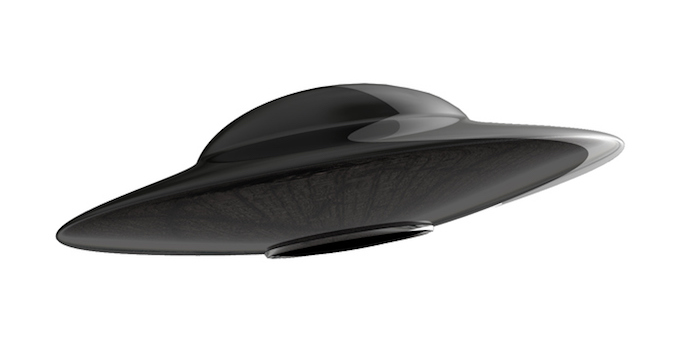
‘Flying saucer’ quantum dots hold secret to better, brighter lasers
Vanderbilt University chemists collaborated in research that ‘squashes’ the shape of nanoparticles to create inexpensive lasers that continuously emit light in a customizable rainbow of colors. Read MoreMar 20, 2017
-
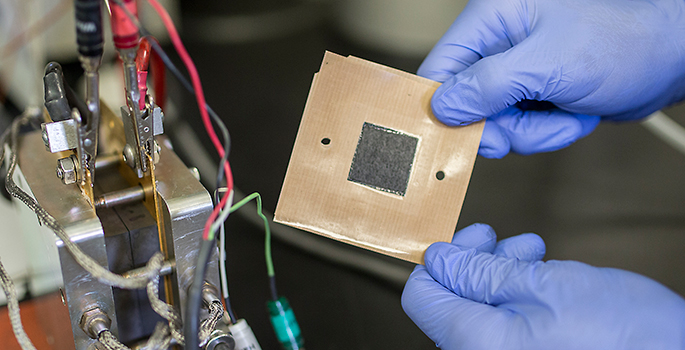
Using nanotechnology to give fuel cells more oomph
Researchers from Vanderbilt University have developed porous polymer-fiber electrodes that may make fuel cells more powerful. Read MoreAug 8, 2016
-
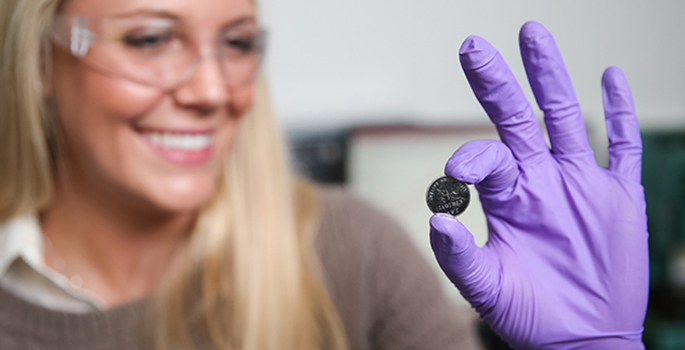
Quantum dots made from fool’s gold boost battery performance
Vanderbilt engineers have discovered that adding quantum dots made from fool's gold to the electrodes of standard lithium batteries can substantially boost their performance. Read MoreNov 11, 2015
-
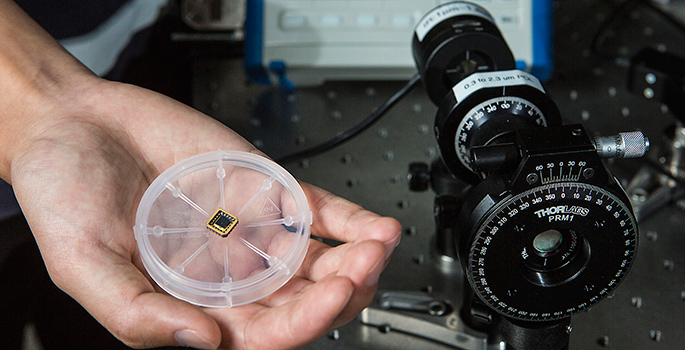
First circularly polarized light detector on a silicon chip
Invention of the first integrated circularly polarized light detector on a silicon chip opens the door for development of small, portable sensors that could expand the use of polarized light for drug screening, surveillance, etc. Read MoreSep 22, 2015
-

World’s smallest spirals could guard against identity theft
Vanderbilt researchers have made the world’s smallest spirals and found they have unique optical properties that are nearly impossible to counterfeit. Read MoreJun 2, 2015
-
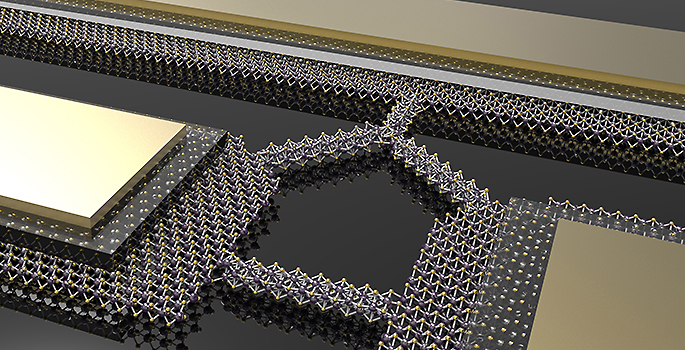
How to create nanowires only three atoms wide with an electron beam
A Vanderbilt graduate student has used a focused beam of electrons to create some of the smallest nanowires ever made, which could bring us closer to flexible, paper-thin tablets and television displays. Read MoreApr 28, 2014
-

Nanoscale optical switch breaks miniaturization barrier
An ultra-fast and ultra-small optical switch has been invented that could advance the day when photons replace electrons in the innards of consumer products ranging from cell phones to automobiles. Read MoreMar 13, 2014
-

Vanderbilt startup BioNanovations gets accelerated
Vanderbilt graduate student Charleson Bell, who is the president of the high tech startup BioNanovations, is participating in a 12-week accelerator program in Silicon Valley specifically designed to encourage underrepresented tech entrepeneurs. Read MoreAug 30, 2013
-

VU researchers ‘goldsmith’ new RSV vaccine approach
Vanderbilt vaccine researchers are using gold nanotechnology to develop a new approach to making vaccines. Read MoreJul 18, 2013
-
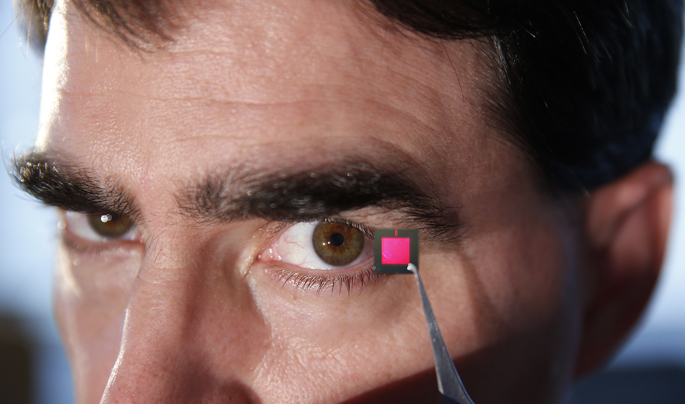
Project seeks to create ‘bioartificial’ kidney
Nephrologist William Fissell IV, M.D., associate professor of Medicine and Biomedical Engineering, is intent on creating and mass-producing an implantable bioartificial kidney that can transform quality of life and prospects for survival for people with chronic kidney disease who would otherwise be forced onto dialysis. Read MoreJul 11, 2013
-

Quantum dots brighten the future of lighting
Vanderbilt researchers have boosted the efficiency of a novel source of white light called quantum dots more than tenfold, making them of potential interest for commercial applications. Read MoreMay 8, 2012
-
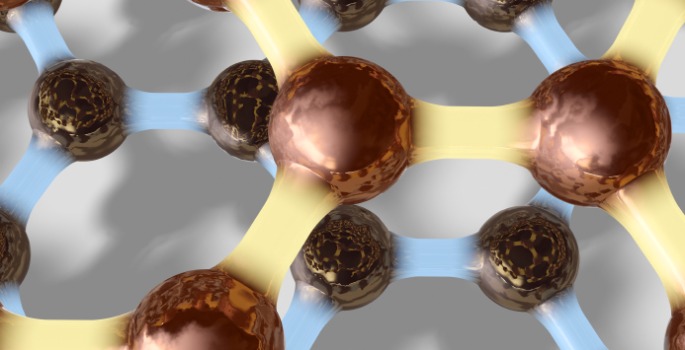
Barrier to faster graphene devices identified and suppressed
Vanderbilt physicists report that they have nailed down the source of the interference inhibiting the rapid flow of electrons through graphene-based devices and found a way to suppress it. Read MoreMar 13, 2012
-
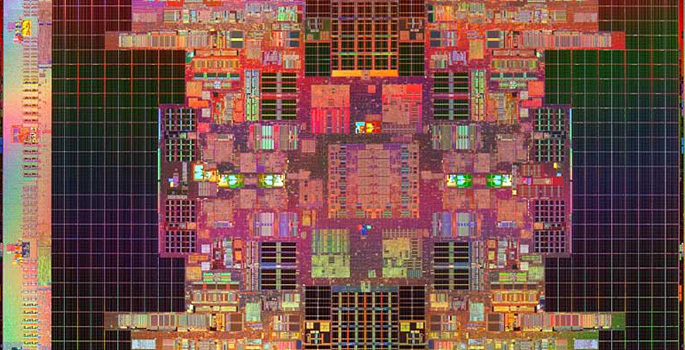
New method for enhancing thermal conductivity could cool computer chips, lasers and other devices
Vanderbilt engineers have discovered a surprising new way to increase a material’s thermal conductivity that provides a new tool for managing thermal effects in computers, lasers and a number of other powered devices. Read MoreDec 14, 2011